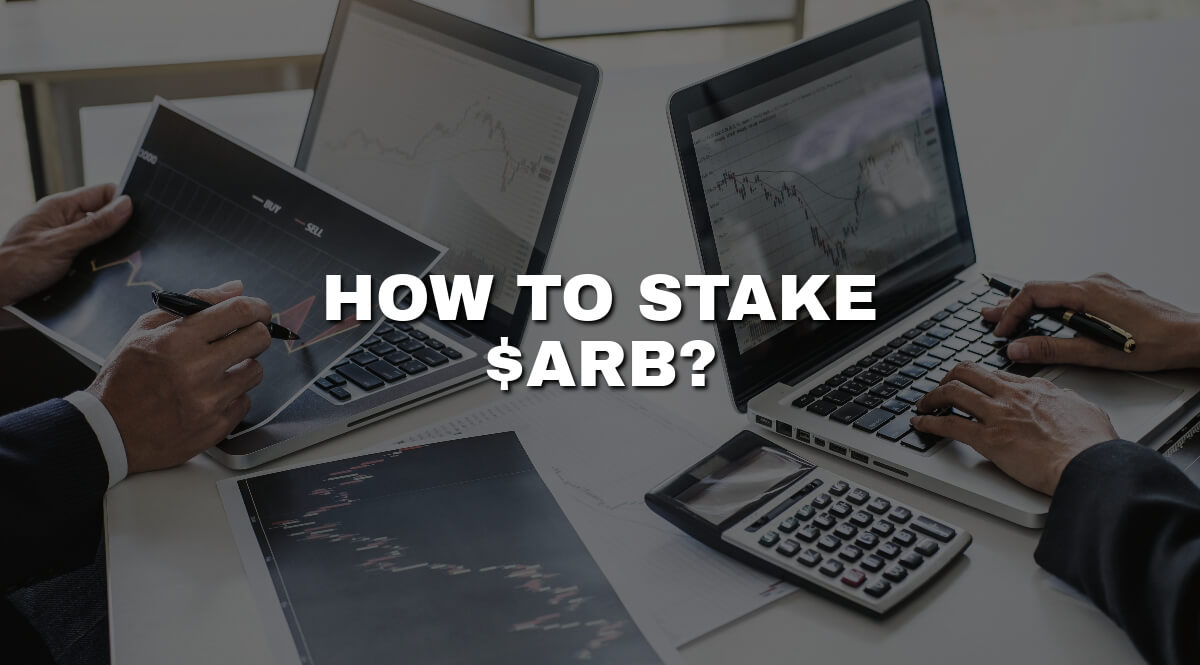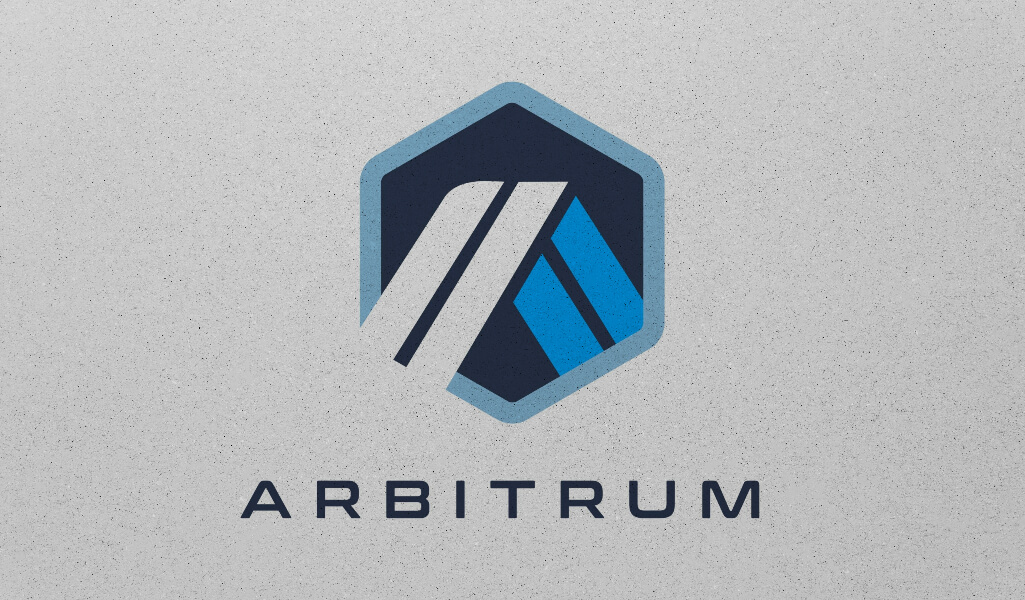
ARB Staking – How to Stake $ARB?
Are you interested in ARB skating? Do you know where you can single-side stake it? Let’s learn more about the ARB staking and token.
The $ARB token serves as an ERC-20 governance token designed for active participation in the Arbitrum DAO’s on-chain governance protocol.
As a reminder, a DAO, or decentralized autonomous organization, is a blockchain-based organization governed by the code and consensus of its token holders. It operates without a central authority, making collective decisions through proposals and voting. DAOs are used for various purposes, including managing funds, governance, and decentralized applications (DApps) development.
What’s interesting, this token is minted by a smart contract that lives on Arbitrum One, a Layer 2 Arbitrum rollup chain.
The primary responsibility of the Arbitrum DAO involves overseeing two critical aspects: the governance protocol outlined in its Constitution and the technologies under its purview.
This encompasses the Arbitrum One and Arbitrum Nova chains, along with their underlying protocols.
$ARB token and its governing model
Holders of $ARB tokens wield the power to influence the operation and progression of the Arbitrum One and Arbitrum Nova chains by participating in governance proposals. These proposals can range from updates to the chain’s infrastructure to decisions concerning the allocation of funds within the DAO Treasury.
When engaging in on-chain proposals, $ARB token holders utilize their tokens to express support or opposition. It’s important to note that the weight of a vote is determined by the number of $ARB tokens held in the voter’s wallet.
In other words, the more $ARB tokens you possess, the greater your voting influence. This token-weighted voting system ensures a fair and proportionate decision-making process within the Arbitrum DAO.
Additionally, $ARB tokens offer the flexibility of delegation. This means that while you can vote using your own $ARB tokens from your wallet, you can also cast votes with $ARB tokens owned by others if they have delegated their voting authority to you.
Delegation proves beneficial for DAO members who may not have the time to actively engage in reviewing and discussing proposals on a regular basis.
The $ARB token was initially created with a supply of 10 billion. New $ARB tokens can be minted at a maximum rate of 2% of the total supply annually, with eligibility for the first of these mints becoming eligible on March 15, 2024. The minting of $ARB tokens is orchestrated by the DAO through a constitutional proposal.
In the context of cryptocurrencies, APY (annual percentage yield) represents the potential annualized return on investment, typically through activities like staking or providing liquidity in DeFi protocols. It factors in compounding interest or rewards and reflects the overall growth of the investment over a year, helping investors assess potential earnings.
Important details to consider regarding ARB staking

If you hold a strong and optimistic outlook for ARB staking, you might be hesitant to engage in liquidity pools (LPs) due to the potential risk of impermanent loss. Let’s take a look at some valuable insights regarding the platforms where you can single-side stake your $ARB tokens.
This approach allows you to maintain your $ARB holdings regardless of any significant price surges it might experience in the future.
Multichain is a pioneering protocol designed to facilitate seamless asset bridging across a wide array of diverse blockchain networks.
Pros of Multichain’s $ARB pool include a substantial level of liquidity, with over $2 million in total value locked (TVL). Additionally, there appear to be no fees associated with staking or unstaking your $ARB tokens, enhancing the attractiveness of this option.
However, it’s important to consider the potential drawbacks. One notable concern is that Multichain operates as a bridge, which might deter some individuals. Bridges have historically been vulnerable to security breaches and are often regarded as weak points within the crypto ecosystem. This security aspect is something that individuals should carefully weigh when considering participation.
PlutusDAO
PlutusDAO offers users the opportunity to stake their $ARB tokens through their liquid staking derivative called plsARB.
Rewards are earned in the form of $PLS tokens, which can be appealing to those who have confidence in the $PLS token and the Plutus protocol.
Pros: From an objective standpoint, PlutusDAO stands as a robust protocol, and the introduction of the option to stake $ARB is a noteworthy addition.
Cons: The validity of any protocol ultimately lies in its performance, and currently, there may be reservations about locking up tokens on any platform unless there is confidence in the ability to unstake them freely.
What is a decentralized exchange?
It is important to learn as much as possible about the crypto world before making a decision regarding ARB staking or any other crypto-related topic.
A decentralized exchange (DEX) is a digital marketplace that enables peer-to-peer cryptocurrency trading without the need for intermediaries like centralized exchanges.
DEXs operate on blockchain technology and use smart contracts to automate trade execution, allowing users to directly swap cryptocurrencies securely. They offer benefits such as increased privacy, control over funds, and reduced reliance on a central authority. Popular DEXs include Uniswap, SushiSwap, and PancakeSwap.
Staking strategies

Staking strategies involve the process of locking up a cryptocurrency in a blockchain network to support its operations and, in return, earn rewards. Here are three common staking strategies:
HODLing: This strategy involves simply buying a cryptocurrency and holding it in a wallet or on a staking platform. By staking and leaving the tokens untouched, investors benefit from potential price appreciation and staking rewards over time.
Validator staking: In proof-of-stake (PoS) and delegated proof-of-stake (DPoS) blockchains, individuals can become validators or delegates by staking a significant amount of the native cryptocurrency. Validators help secure the network and validate transactions in exchange for rewards. This strategy requires technical knowledge and a substantial stake.
Liquidity provision: Liquidity providers stake their cryptocurrency assets in decentralized finance (DeFi) platforms, such as automated market makers (AMMs) like Uniswap. They earn a share of the trading fees generated on the platform in proportion to their staked assets. This strategy offers both staking rewards and a portion of trading fees.
Each staking strategy has its own risk-reward profile, and the choice depends on an individual’s risk tolerance, technical expertise, and investment goals.
Trading volume
We shouldn’t forget about trading volume.
Trading volume in cryptocurrency refers to the total quantity of a digital asset bought and sold within a specific time frame, typically 24 hours.
It reflects the market’s activity and liquidity. High trading volume often indicates increased interest, while low volume can signify limited market participation, impacting price stability and trading opportunities.
DeFi (Decentralized Finance) protocols are blockchain-based financial platforms that offer decentralized lending, borrowing, trading, and yield farming services, bypassing traditional intermediaries like banks. Users interact directly with smart contracts, enhancing financial accessibility and control. Popular DeFi protocols include Compound, Aave, and MakerDAO.
To sum up, the $ARB token holds a distinct role as a specialized digital asset, enabling holders to vote on critical on-chain proposals that shape the direction of the Arbitrum DAO and the technologies it governs. Owning $ARB tokens grants you the opportunity to actively participate in the democratic evolution of the Arbitrum ecosystem alongside like-minded and incentive-aligned token holders.




